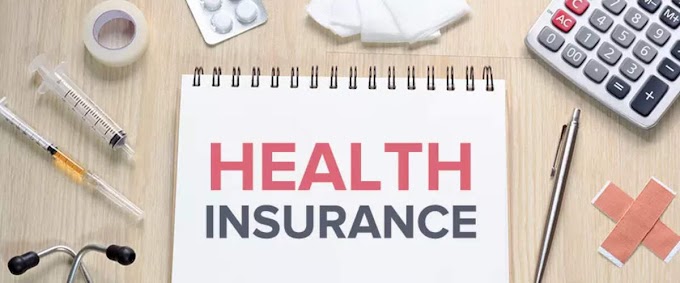What is auto insurance?
Auto insurance is a type of insurance coverage for vehicles, such as cars, trucks, and motorcycles. The purpose of auto insurance is to provide financial protection in the event of an accident, theft, or damage to the vehicle. Auto insurance policies typically include a range of coverage options, such as liability coverage, which pays for damages or injuries that you cause to others while driving; collision coverage, which pays for damages to your own vehicle if you're in an accident; and comprehensive coverage, which pays for damages to your vehicle from non-collision events such as theft, fire, or natural disasters. Auto insurance policies can also include additional coverage options, such as personal injury protection and uninsured/underinsured motorist coverage. The specific coverage options and limits vary depending on the policy and the state in which you live.
Auto insurance policies typically have several components, including:
- Liability coverage: This coverage pays for damages or injuries that you cause to others while driving your vehicle. It typically includes two types of coverage: bodily injury liability coverage and property damage liability coverage. Bodily injury liability coverage pays for medical expenses and lost wages if you're at fault in an accident and someone else is injured. Property damage liability coverage pays for damages to someone else's property if you're at fault in an accident.
- Collision coverage: This coverage pays for damages to your own vehicle if you're in an accident, regardless of who is at fault. If you have an accident and your car is damaged, collision coverage can help pay for repairs or replacement of your vehicle.
- Comprehensive coverage: This coverage pays for damages to your vehicle from non-collision events such as theft, fire, or natural disasters. Comprehensive coverage helps protect your car if it is damaged or destroyed by something other than a collision with another vehicle.
- Personal Injury Protection (PIP): This coverage pays for medical expenses and lost wages if you or your passengers are injured in a car accident, regardless of who is at fault. PIP coverage is required in some states and optional in others.
- Uninsured/Underinsured Motorist Coverage: This coverage pays for damages or injuries that you or your passengers incur in an accident caused by a driver who doesn't have enough insurance to cover the damages. This coverage can help protect you if you're hit by a driver who doesn't have insurance or doesn't have enough insurance to pay for the damages.
The specific coverage options, limits, and deductibles available to you will depend on the insurance company and the state in which you live. It's important to understand your coverage options and choose the right coverage for your needs. Additionally, it's a good idea to review your auto insurance policy regularly to make sure that it still meets your needs.
Is auto insurance coverage mandatory?
In most states, it is mandatory to have some form of auto insurance coverage. This means that if you own a vehicle and drive it on public roads, you are required by law to have a minimum level of insurance coverage. The specific requirements vary by state, but typically include liability coverage, which pays for damages or injuries that you cause to others while driving.
Having auto insurance is not only required by law, but it also provides financial protection in the event of an accident, theft, or damage to your vehicle. Without insurance, you could be personally responsible for paying for the damages or injuries that you cause to others, as well as for repairs or replacement of your own vehicle.
It's important to note that if you are caught driving without insurance, you could face fines, license suspension, and other penalties. In addition, if you're involved in an accident and don't have insurance, you could be personally responsible for paying for the damages, which can be financially devastating.
What is gap insurance and do I need it?
Gap insurance, also known as guaranteed asset protection insurance, is a type of coverage that helps protect you in the event that you owe more on your vehicle than it is worth. This can happen, for example, if you total your car in an accident and the insurance payout from your auto insurance policy is less than the amount you still owe on your car loan.
Gap insurance can help cover the "gap" between the amount you owe on your car loan and the actual value of your vehicle, which is determined by the insurance company. This can help protect you from having to pay the difference out of your own pocket.
Whether you need gap insurance depends on your personal financial situation and the terms of your car loan. If you have a large down payment or a short loan term, you may not need gap insurance because the amount you owe on your car loan is likely to be close to or less than the value of your vehicle. However, if you have a long loan term or a small down payment, it's possible that you could owe more on your car loan than your vehicle is worth, which makes gap insurance more important.
Ultimately, it's a good idea to talk to your insurance agent or financial advisor to determine if gap insurance is right for you. They can help you evaluate your financial situation and the terms of your car loan to determine if gap insurance makes sense for you.
What is the cheapest place to get car insurance?
The cheapest place to get car insurance can vary depending on several factors, including your location, age, driving record, and the type of vehicle you drive. However, here are some general tips that can help you find the cheapest car insurance:
- Shop around: Get quotes from multiple insurance companies to compare rates and coverage. You may find that the cost of insurance can vary significantly from one company to another.
- Consider a higher deductible: Choosing a higher deductible can lower your monthly premium, but it also means that you'll have to pay more out of pocket if you're in an accident.
- Maintain a good driving record: Insurance companies consider your driving record when determining your premium, so maintaining a good driving record can help keep your insurance costs low.
- Take advantage of discounts: Many insurance companies offer discounts for things like having multiple vehicles on the same policy, being a safe driver, or taking a defensive driving course. Ask your insurance company about any discounts that may be available to you.
- Compare rates regularly: Insurance rates can change over time, so it's a good idea to compare rates and coverage options every year to make sure you're still getting the best deal.
Some of the largest insurance companies, such as State Farm, Geico, and Progressive, are known for offering competitive rates. However, it's important to compare quotes from multiple companies to find the best rate for you. Additionally, it's a good idea to work with an independent insurance agent who can help you compare rates and coverage from multiple insurance companies.
Auto Insurance Companies
There are many auto insurance companies available, each offering a range of coverage options and pricing. Some of the largest and most well-known auto insurance companies include:
- State Farm
- Geico
- Progressive
- Allstate
- USAA
- Farmers Insurance
- Nationwide
- American Family Insurance
- The Hartford
- Travelers
These companies offer a range of coverage options, including liability insurance, collision insurance, comprehensive insurance, and personal injury protection. Some also offer additional coverage options, such as gap insurance, roadside assistance, and rental car reimbursement.
It's important to shop around and compare quotes from multiple insurance companies to find the coverage that best fits your needs at a price you can afford. An independent insurance agent can also be a helpful resource in navigating the different options and finding the best coverage for you.
- State Farm: State Farm is one of the largest auto insurance companies in the United States. They offer a range of coverage options, including liability insurance, collision insurance, comprehensive insurance, and personal injury protection. State Farm also offers additional coverage options, such as gap insurance, roadside assistance, and rental car reimbursement. In addition to auto insurance, State Farm offers a variety of other insurance products, including home and life insurance.
- Geico: Geico is a well-known auto insurance company known for its low rates and convenient online services. They offer liability insurance, collision insurance, comprehensive insurance, and personal injury protection. Geico also offers additional coverage options, such as uninsured/underinsured motorist coverage, towing and labor coverage, and rental car reimbursement.
- Progressive: Progressive is one of the largest auto insurance companies in the United States and is known for offering competitive rates. They offer a range of coverage options, including liability insurance, collision insurance, comprehensive insurance, and personal injury protection. Progressive also offers additional coverage options, such as gap insurance, roadside assistance, and rental car reimbursement.
- Allstate: Allstate is a large insurance company that offers a range of insurance products, including auto insurance. They offer liability insurance, collision insurance, comprehensive insurance, and personal injury protection. Allstate also offers additional coverage options, such as gap insurance, roadside assistance, and rental car reimbursement.
- USAA: USAA is a unique auto insurance company that is only available to military members, veterans, and their families. They offer liability insurance, collision insurance, comprehensive insurance, and personal injury protection. USAA also offers additional coverage options, such as gap insurance, roadside assistance, and rental car reimbursement.
- Farmers Insurance: Farmers Insurance is a well-known insurance company that offers a range of insurance products, including auto insurance. They offer liability insurance, collision insurance, comprehensive insurance, and personal injury protection. Farmers Insurance also offers additional coverage options, such as gap insurance, roadside assistance, and rental car reimbursement.
- Nationwide: Nationwide is a large insurance company that offers a range of insurance products, including auto insurance. They offer liability insurance, collision insurance, comprehensive insurance, and personal injury protection. Nationwide also offers additional coverage options, such as gap insurance, roadside assistance, and rental car reimbursement.
- American Family Insurance: American Family Insurance is a well-known insurance company that offers a range of insurance products, including auto insurance. They offer liability insurance, collision insurance, comprehensive insurance, and personal injury protection. American Family Insurance also offers additional coverage options, such as gap insurance, roadside assistance, and rental car reimbursement.
- The Hartford: The Hartford is a well-known insurance company that offers a range of insurance products, including auto insurance. They offer liability insurance, collision insurance, comprehensive insurance, and personal injury protection. The Hartford also offers additional coverage options, such as gap insurance, roadside assistance, and rental car reimbursement.
- Travelers: Travelers is a well-known insurance company that offers a range of insurance products, including auto insurance. They offer liability insurance, collision insurance, comprehensive insurance, and personal injury protection. Travelers also offers additional coverage options, such as gap insurance, roadside assistance, and rental car reimbursement.
It's important to compare quotes and coverage options from multiple insurance companies to find the best coverage for your needs at a price you can afford. An independent insurance agent can also be a helpful resource in navigating the different options and finding the best coverage for you.
What is the best car insurance right now?
Determining the "best" car insurance is subjective and depends on a number of factors, including your individual needs, driving habits, and budget. Some of the factors that can impact the best car insurance for you include:
- Coverage needs: The best car insurance for you will depend on the coverage you need. Do you need liability insurance, collision insurance, comprehensive insurance, personal injury protection, or a combination of these coverages?
- Driving record: Your driving record can impact the cost of your car insurance. Drivers with a clean record typically pay less for insurance than those with multiple accidents or traffic violations.
- Vehicle type: The type of vehicle you drive can impact your insurance rates. Sports cars, for example, tend to be more expensive to insure than sedans or SUVs.
- Location: Your location can impact your car insurance rates. Insurance companies consider factors such as traffic patterns, crime rates, and weather patterns when determining insurance rates.
Budget: Your budget will also impact the best car insurance for you. You'll want to find a policy that provides the coverage you need at a price you can afford.
Given these factors, some of the best car insurance companies include:
State Farm
Geico
Progressive
USAA (available to military members, veterans, and their families)
Amica Mutual
It's important to compare quotes and coverage options from multiple insurance companies to find the best coverage for your needs at a price you can afford. An independent insurance agent can also be a helpful resource in navigating the different options and finding the best coverage for you.








